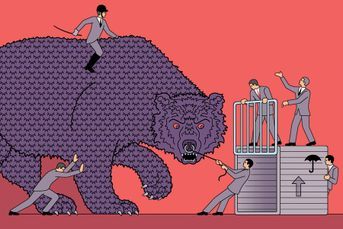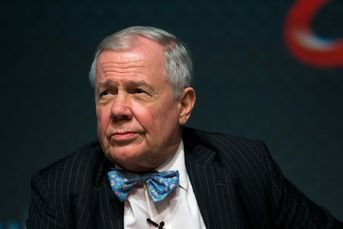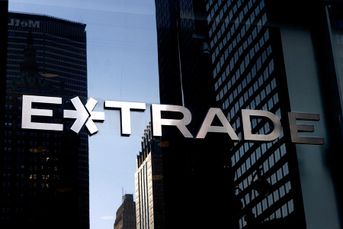Active managers still losing to indexes
But American Funds proposes two rules to increase advisers' odds of choosing a winner.
Index funds are still beating actively managed funds like a piñata at a 10-year-old’s birthday party, according to Standard & Poor’s. But the American Funds says advisers can avoid some truly awful funds with a few simple, additional screens.
The mid-year S&P Indices vs. Active (SPIVA) scorecard shows that actively managed funds are routinely clobbered by index funds.
“Over the one-year period, 56.6% of large-cap managers, 60.7% of mid-cap managers and 59.6% of small-cap managers underperformed the S&P 500, the S&P MidCap 400 and the S&P SmallCap 600, respectively,” said the report, which covered performance through June 30. Growth managers fared better than their core and value counterparts, reflecting the strong returns from technology stocks such as Amazon and Netflix.
Surprisingly, the one-year SPIVA results were stronger for active funds than the report six months earlier. But long-term results remain sadder than a rodeo clown in an elephant stampede.
Over the past five years, 82.4% of large-cap managers, 87.2% of mid-cap managers and 93.8% of small-cap managers lagged their respective benchmarks.
The SPIVA report is adjusted for funds that either merge or liquidate. In the past 15 years, 58% of U.S. stock funds and 55% of international stock funds have been shuffled off to Palookaville.
Steve Deschenes, product management and analytics director at Capital Group, thinks the SPIVA methodology has some important flaws. For one thing, most passively managed funds don’t beat their index, either: They lag by the amount they charge in expenses. For example, the Vanguard 500 Index fund investor share class has lagged its benchmark Standard & Poor’s 500 stock index by 0.13 percentage points a year — a figure that’s almost entirely due to its 0.14% annual expense ratio.
Mr. Deschenes argues that two simple screens can help advisers choose funds more likely to beat their benchmarks:
• Low expenses. Fund managers have a tough enough time beating their benchmark, and doing so with a 1.5% expense ratio is a Herculean feat.
• High management ownership. Not surprisingly, managers whose lifestyle depends on their funds’ performance tend to do better than those who don’t invest in their own fund.
Capital Group, managers of the actively managed American Funds, looked at 20 years’ worth of performance and found that funds in the top quartile of both criteria tended to outperform over the long term. (U.S. funds with an expense ratio below 0.98% and foreign funds with expense ratios below 1.08% qualified for the lowest quartile in expenses. For management ownership, the top quartile included firms that had 55% or more assets in the fund family complex in which at least one portfolio manager had invested a minimum of $1 million.)
U.S. large-cap funds in both quartiles, on average, outpaced the S&P 500 index in 72% of rolling five-year periods and 86% of rolling 10-year periods. International large-cap funds in both quartiles outpaced the MSCI All Country ex USA Index in 84% of the five-year periods and 87% of the 10-year periods.
“The two criteria combined improves the success rate in every time period and asset class,” Mr. Deschenes said.
Todd Rosenbluth, senior director of ETF and mutual fund research at CFRA, noted that while the American Funds is a low-cost active manager, the research has merit.
“I agree with the premise that you shouldn’t buy any average fund. Being cheaper is going to help a fund outperform its peers,” he said. “Large fund companies can keep costs down and deal better with manager turnover.”
Learn more about reprints and licensing for this article.








